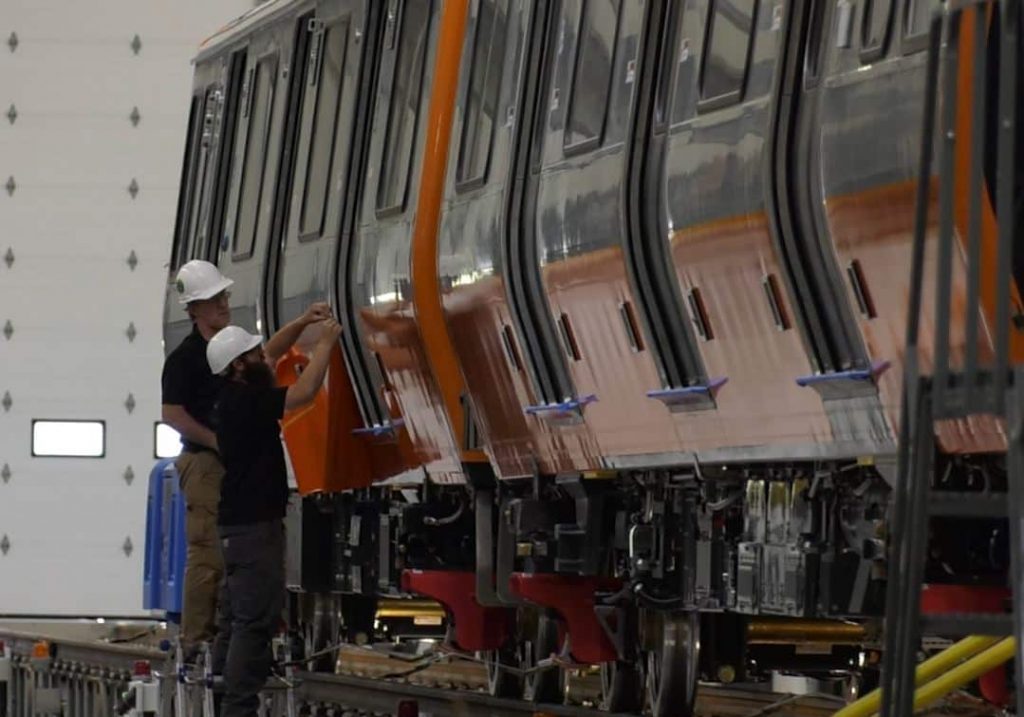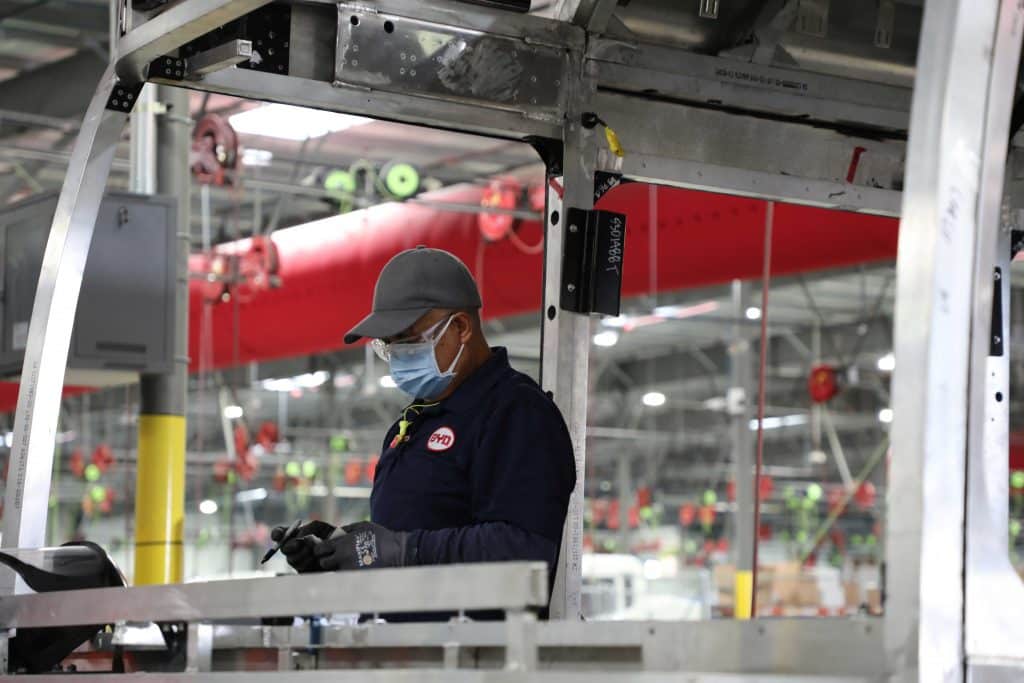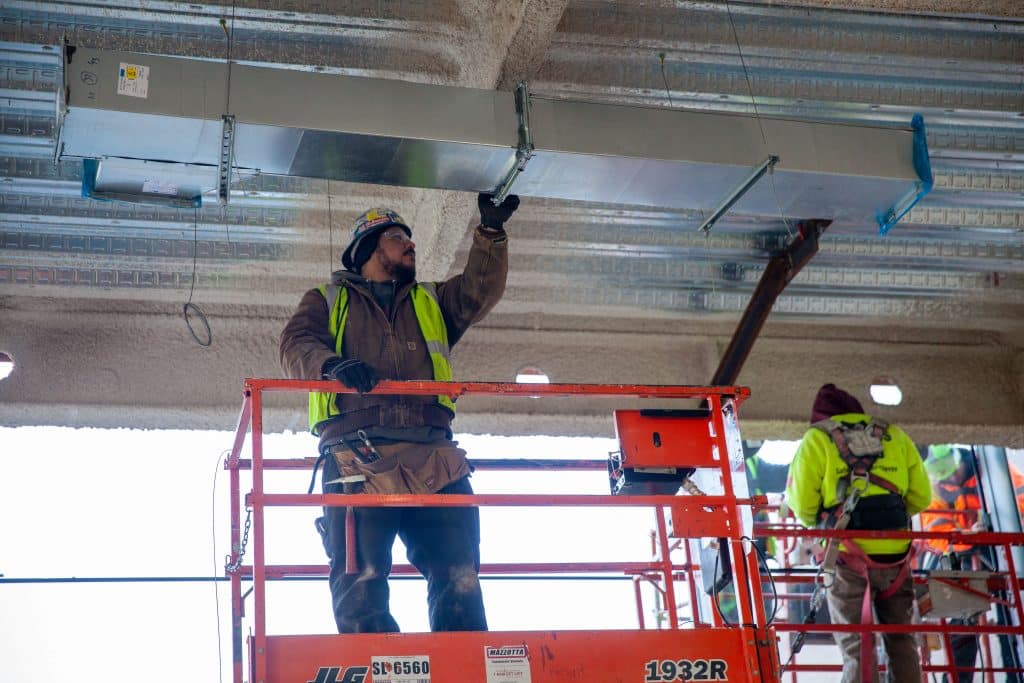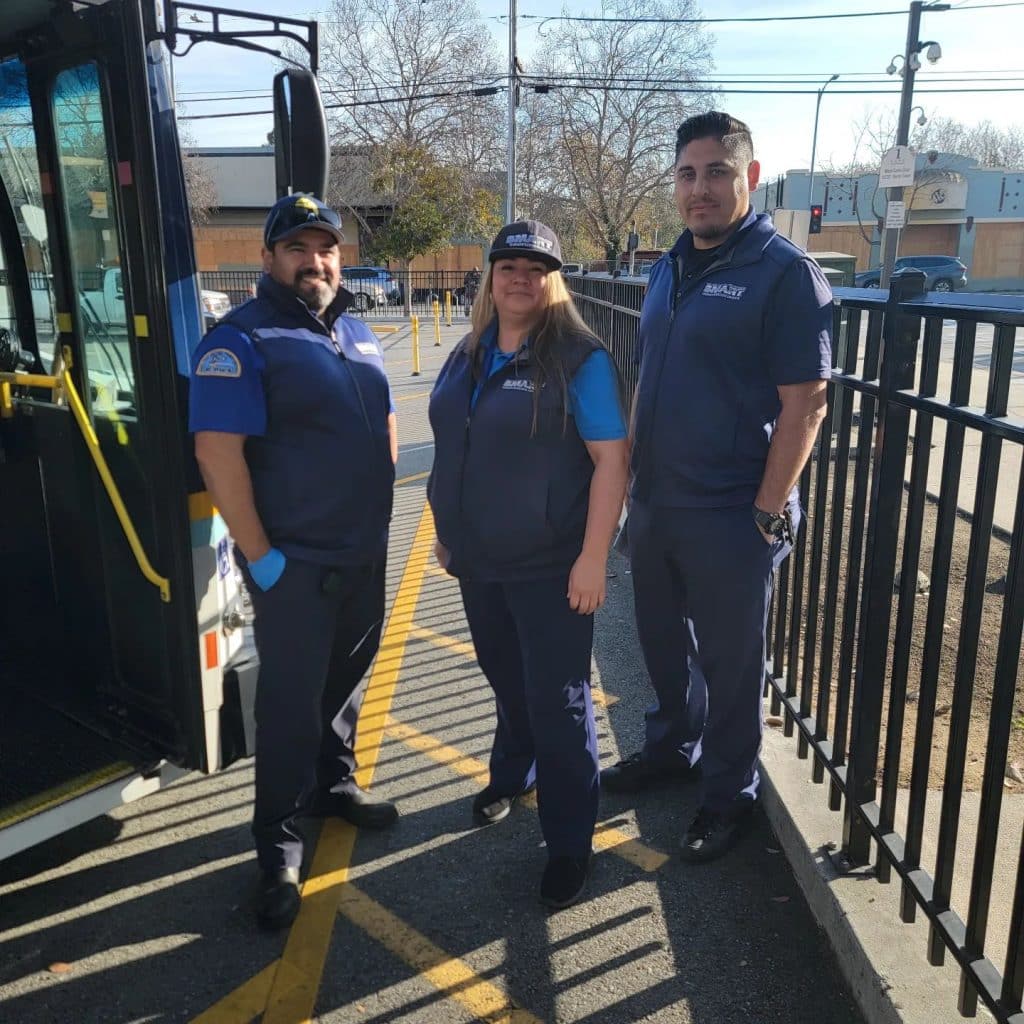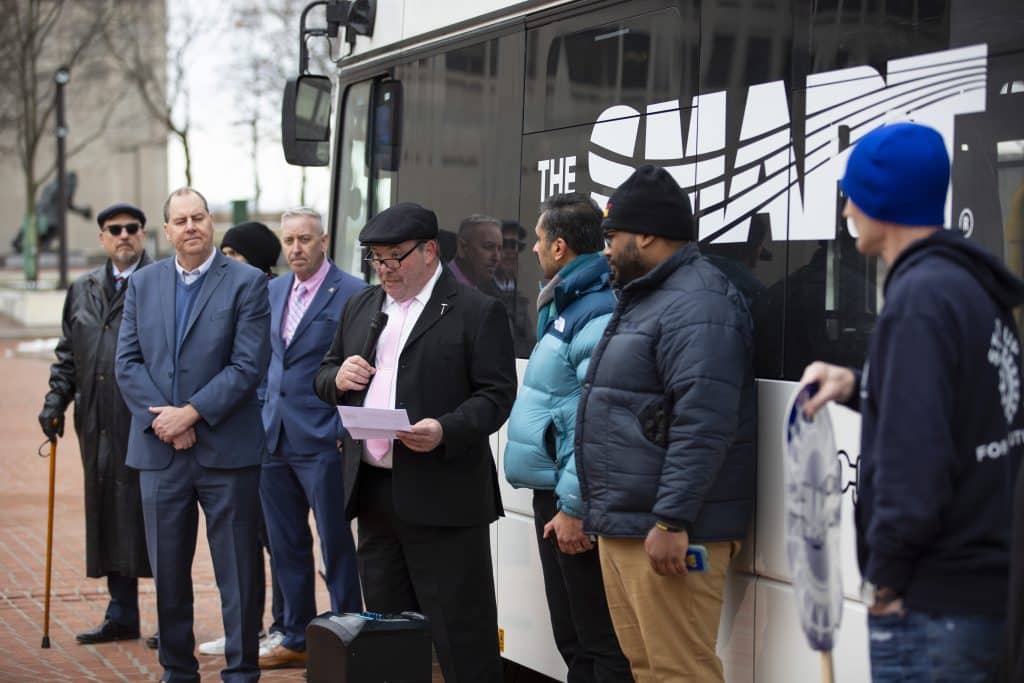
SMART International Organizer Warren Faust and International Representative Larry Kinzie joined fellow union members, environmental advocates, industry leaders and New York state legislators on January 30 to call on Governor Kathy Hochul to include the Green Transit, Green Jobs bill (S.6089/A.6414) in the SFY 2025 Final Budget. Standing in front of an electric bus built by SMART Local 105 members in Lancaster, California, the coalition urged New York lawmakers to pass common-sense legislation that puts workers first and creates union jobs.
“As the union that represents workers at a major zero-emission bus manufacturer, we recognize that government spending can support good, community-sustaining jobs throughout the country and in New York,” said Faust.
The Green Transit, Green Jobs bill would mandate that public bus systems convert to zero-emission buses, incentivizing the manufacturing of electric buses in New York communities that need jobs and opportunity. It would require that all new buses purchased by New York public transit authorities be electric by 2029, and it would ensure that zero-emission buses purchased by the state achieve a dual goal: helping reduce carbon emissions in New York State and creating good, family-sustaining jobs that take New Yorkers into the middle class.
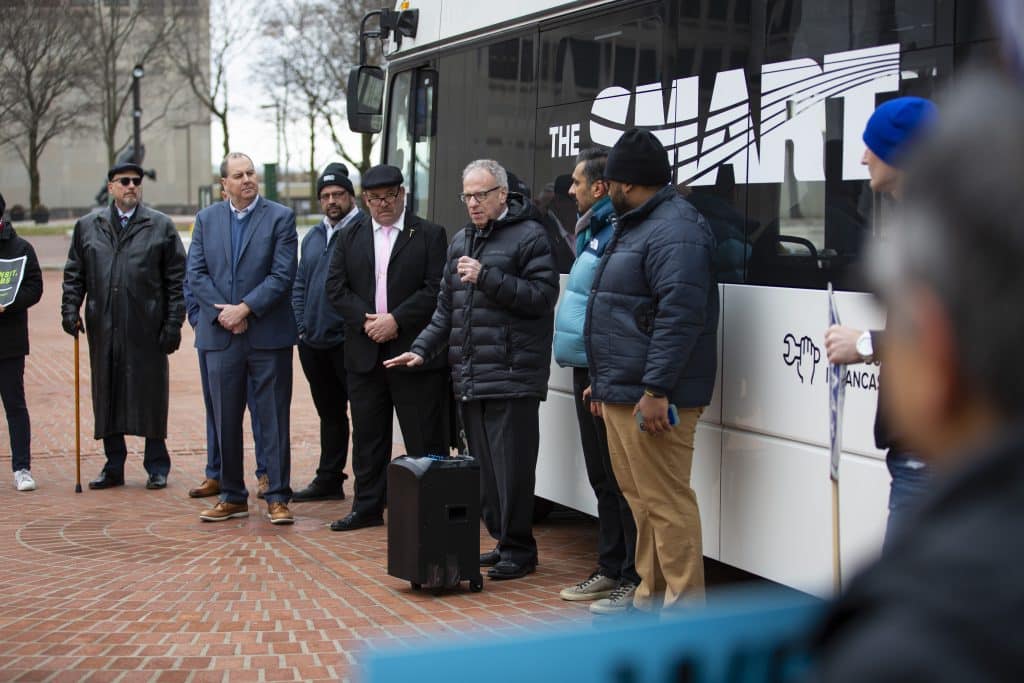
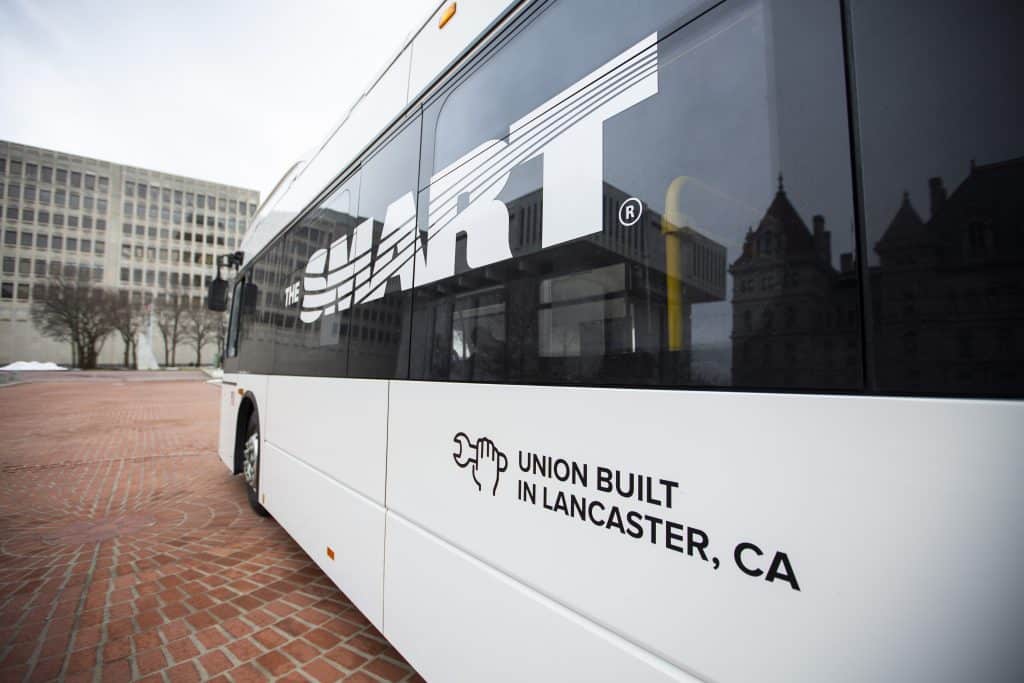
During the January 30 rally, Faust pointed to the work of Local 105 members at electric bus manufacturer BYD as an example for New York to follow, noting that their work helped the Antelope Valley Transit Authority achieve North America’s first fully zero-emission bus fleet in 2022. He also emphasized the importance of SMART and BYD’s work to develop the country’s first electric bus manufacturing apprenticeship program, creating firm pathways to union careers for local community members.
“SMART and BYD have shown that a successful partnership between unions and manufacturers can lead to a well-trained workforce ready for the transition to a green economy,” Faust said. “This was possible through policy proposals like the U.S. Jobs Plan, a strong jobs and equity tool that is part of the Green Transit, Green Jobs bill.”
Currently, according to Earthjustice, the transportation sector accounts for 41% of all fuel combustion emissions in New York state – helping spur the ongoing climate crisis and leading to high levels of air pollution that make up more than 2,000 premature deaths from ingesting toxic pollution from tailpipe emissions annually. The public health damages from vehicle emissions cost the state $21 billion each year.
“New York state can change the way it invests our public dollars to maintain and create good, community-sustaining jobs in manufacturing,” Faust concluded. “New York can lead the way by passing the U.S. Jobs Plan and the Green Transit, Green Jobs bill.”
